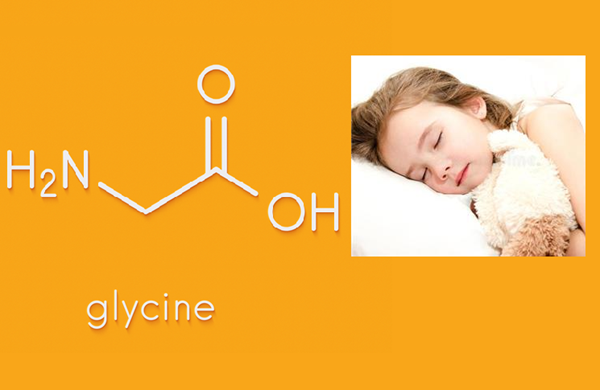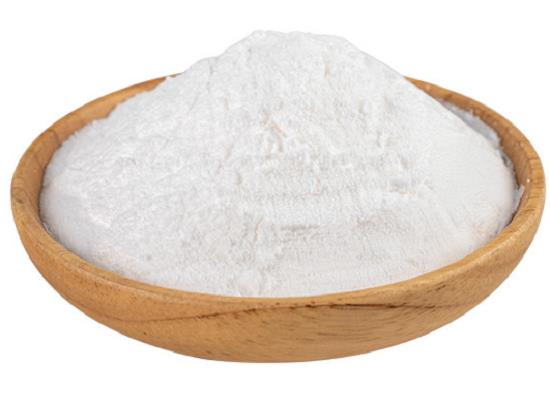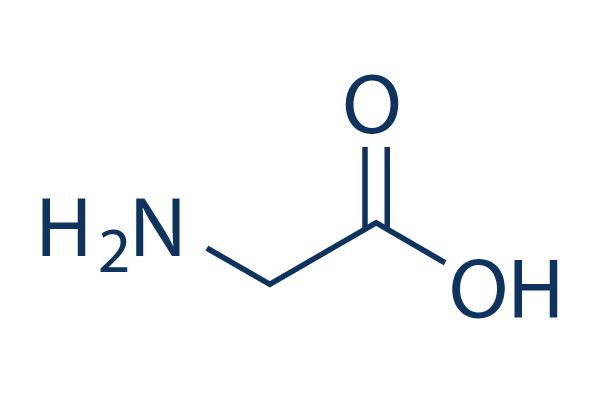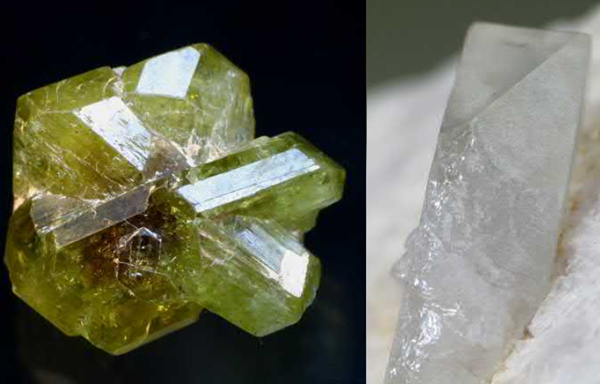Glycine: Dietary sources, Supplements and Benefits
What is Glycine?
Glycine is the smallest protein amino acid, a non-essential amino acid that occurs naturally in humans, animals and many mammals. Glycine is produced primarily in the kidneys and liver and is a precursor to several low molecular weight key metabolites such as creatine, glutathione, haemoglobin, purines and porphyrins. Glycine has important functions in cytoprotection, immune response, growth, development, metabolism and survival in humans and animals, effectively improving their health.
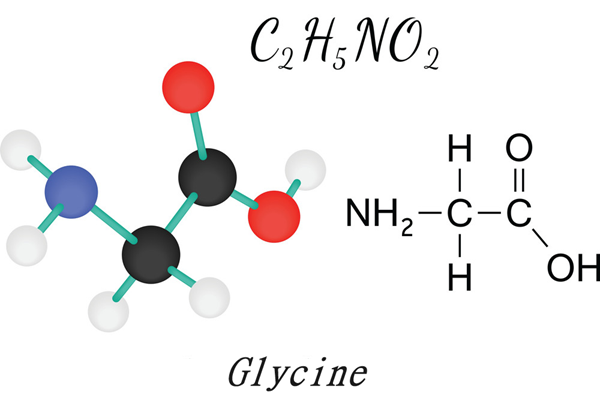
Dietary sources
Glycine is also able to be obtained through the daily diet, and the following list about the main foods rich in glycine includes:
Dried gelatine powder: 19.1 g/100 g (19.1 g per 100 g)
Pork rind snacks: 11.9 g/100 g
Low-fat sesame seed powder: 3.4 g/100 g
Chicken skin: 3.3g/100g
Dried egg white: 2.8g/100g
Bacon: 2.6 g/100 g
Lean beef: 2.2 g/100 g
Cuttlefish: 2.0 g/100 g
Lean lamb: 1.8 g/100 g
Peanuts: 1.6 g/100 g
Hard cheese: 0.6 g/100 g
Pasta: 0.6 g/100 g
Almonds: 0.6 g/100 g
Soya and bread: 0.5 g/100 g
Beans: 0.4 g/100 g
Glycine Supplements
Although glycine can be obtained and supplemented through the daily diet, glycine synthesis is inadequate in humans, animals and birds under common feeding conditions. Numerous reports support the role of glycine supplementation in the prevention of many diseases and disorders, including cancer. Dietary supplementation with appropriate doses of glycine may also be effective in treating metabolic disorders in patients with cardiovascular disease, many inflammatory diseases, obesity, cancer and diabetes. Glycine supplements are available in capsules or powder. You can take the supplement either orally or by adding the powder to foods such as shakes or smoothies.
Benefits of Glycine
Detoxification
Glycine has many benefits for the human body. Studies have shown that glycine is an integral part of the body's detoxification system because it reacts with potentially toxic exogenous and endogenous compounds and metabolites via the glycine conjugation pathway, which are then excreted from the body. Therefore, dietary supplementation with glycine can treat obesity-related metabolic complications due to the accumulation of toxic metabolites in the mitochondria. In addition, oral glycine is effective in preventing alcohol-induced hepatotoxicity.
Promotes antioxidant function and improves bone health
Glycine helps your body make glutathione, which is an important antioxidant that protects your body from cellular damage. It is also a component of creatine, a compound that provides energy to muscles, so supplementing with glycine helps with bone health.
Glycine is a key component of collagen
Collagen is the most common protein in animals, which contains one glycine for every three amino acids. This regular repetition of this glycine residue is necessary for the tight stacking of the collagen triple helix. The effect of replacing glycine with its homologue β-alanine in collagen model peptides (CMPs) on triple-helix formation has also been shown to be incompatible with triple-helix formation with β-alanine in the middle of the CMP sequence. Alanine residues, on the other hand, are tolerated. This study highlights the critical role of glycine in collagen.
Improvement of sleep quality
Studies have shown that glycine supplements can improve sleep in patients with insomnia. This may be through its calming effect on the brain and its ability to lower core body temperature to promote sleep and improve sleep quality .
Protect the heart and prevent cardiovascular diseases
Studies have shown that glycine increases the body's ability to use nitric oxide. And nitric oxide is an important molecule for increasing blood flow and lowering blood pressure. In an observational study of more than 4,100 patients with chest pain, higher levels of glycine were associated with a lower risk of heart disease and heart attack over a 7.4-year follow-up. In a 2015 study of glycine plasma levels and acute myocardial infarction, results showed that people with higher plasma glycine levels had a lower risk of heart attack. Another study also showed glycine may improve ischaemic stroke by regulating glucose metabolism, inflammatory responses and shedding of damaged cells. In summary, glycine prevents the risk of heart attack and helps improve cardiovascular disease (reducing the risk of stroke).
References:
[1] DAVID KODR; Helma W; Tomas Fiala. The irreplaceable glycine: glycine homologs destabilize the collagen triple helix[J]. Tetrahedron Letters, 2024. DOI:10.1016/j.tetlet.2024.154964.
[2] TAN H C, HSU J W, TAI S, et al. The impact of obesity-associated glycine deficiency on the elimination of endogenous and exogenous metabolites via the glycine conjugation pathway[J]. Frontiers in Endocrinology, 2024. DOI:10.3389/fendo.2024.1343738.
[3] MEERZA ABDUL RAZAK. Multifarious Beneficial Effect of Nonessential Amino Acid, Glycine: A Review.[J]. Oxidative Medicine and Cellular Longevity, 2017: 1716701. DOI:10.1155/2017/1716701.
You may like
Related articles And Qustion
See also
Lastest Price from Glycine manufacturers

US $1200.00-1100.00/ton2025-10-13
- CAS:
- 56-40-6
- Min. Order:
- 1ton
- Purity:
- 99%
- Supply Ability:
- 1000T/M

US $0.00/Kg/Drum2025-04-21
- CAS:
- 56-40-6
- Min. Order:
- 1KG
- Purity:
- 98.5%-101.5%;USP
- Supply Ability:
- 10 TONS

